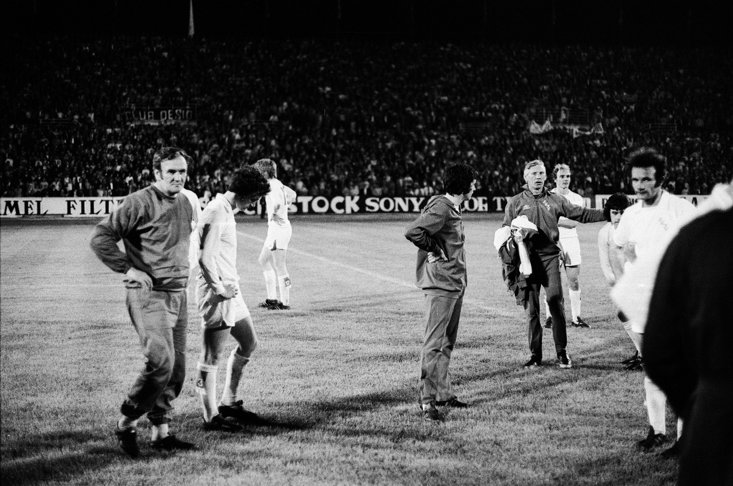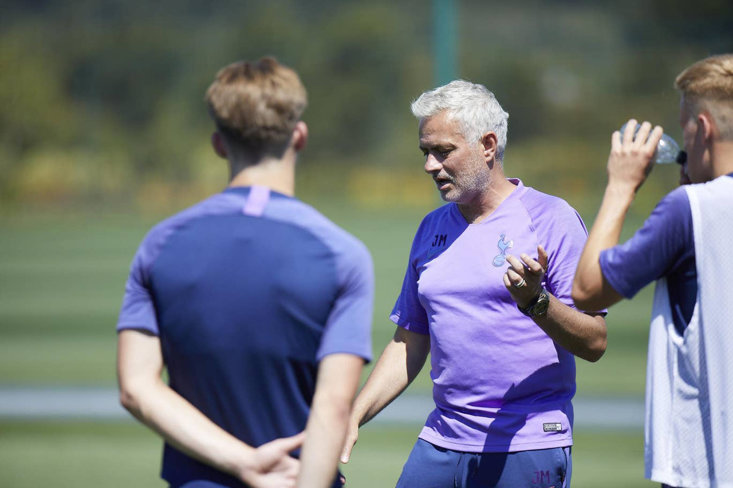If you watched ‘The English Game’ on Netflix recently, the countless differences between Victorian era football and the sport we see today will not have been lost on you. We have never witnessed Lionel Messi wearing long johns on the pitch, the ball is no longer a heavy misshapen lump of brown leather, and Cristiano Ronaldo doesn’t spend most of his week donning a morning suit. At least, not that we know of.
But one thing does remain the same as back in those days when the Old Etonians were the dominant force and the only controversial foreigners in the game were those who arrived from Partick. Because, just as in the 19th century, football managers today are still regularly referred to as ‘Gaffer’ by players and staff members alike
The moniker is most associated with traditional British types, with the likes of Sean Dyche and Neil Warnock considered the personification of the stereotypical ‘Gaffer’, all gruff, shouty and Northern. Warnock even named his autobiography ‘The Gaffer’ in reference to the nickname he has lived by for the last four decades.

The link between those archetypes and the word itself is perhaps understandable since ‘Gaffer’ it was the name given to foremen back in the days when ‘The English Game’ stars Fergie Suter and Jimmy Love were coaxed down from Glasgow to lead Darwen’s assault on the upper-class football hierarchy of the time.
The word originally came to prominence as far back as William Shakespeare’s days in the 16th Century, when the sobriquet was derived from the word ‘Godfather’ as a term for an older man. In time it became a well-used name for the boss of a team of labourers, making it a staple of the factory floor.
The ascension of working-class football teams in Victorian times saw the name ‘Gaffer’ being used for managers from an early point in the sport’s history, and it is something which has largely stuck through the passage of time.
It was made most popular in the 1960s and 70s thanks to the rise of Don Revie, who was Leeds’ gaffer during the club’s most successful ever run. His effect on the Yorkshire club helped to mythologise both the man and the moniker.

However, it wasn’t to everyone’s taste. When becoming manager of Coventry City in 1961, just months after Revie’s Elland Road appointment, Jimmy Hill insisted on players calling him ‘JH’ as opposed to gaffer or boss, since he was a fan of neither of the popular terms.
These days, the name has become more known for its use in football than in any other walk of life. Just watch the Amazon Prime Video series ‘Tottenham Hotspur: All or Nothing’ for evidence of its prevalence in the modern game, as Jose Mourinho is shown to have embraced this most very British of terms for its leaders, proving its not just the Dyches, Warnocks or Sam Allardyces of the world for whom the term is reserved.
Harry Kane is chief among those referring to the Special One as ‘Gaffer’, although one glance at Kane’s emotional goodbye to Mourinho’s predecessor, Mauricio Pochettino, suggests there’s nothing particularly special about the England captain’s reverence of his current boss.
“Gaffer. I’ll be forever thankful to you for helping me achieve my dreams,” Kane tweeted of Pochettino following the Argentine’s Spurs sacking in November 2019. “We’ve had some amazing moments in the last five and a half years that I will never forget.”
Yet just a few months on he was busy using the same pet name for his new manager. “Next year would be the first chance for the Gaffer to have a pre-season,” he told the International Champions Cup website in early 2020. “It’s been good working with him. What you see is what you get. He’s an honest guy.” How quickly footballers move on!
But ‘Gaffer’ isn’t only reserved for friendly messages between player and manager, with Danny Rose’s furious confrontation with Mourinho during the Amazon series over a lack of playing time being littered with such references.
“Gaffer, I just want to know what the problem is,” demanded Rose. “You know exactly what I mean. How I’m being treated. I was very excited when you came as manager, but if you don’t want me to play I’d rather you just told me now and I’ll stay at home, Gaffer.”
Rose went on to say that those picked ahead of him had been, well… rubbish, to put it politely, and demanded a meeting with chairman Daniel Levy, who presumably is the Chief Gaffer, or Grand-Gaffer.

It might seem strange to most of us that a term coined by 19th-century factory workers for their similarly modestly-paid shift managers should remain in usage for sporting icons of 2020, especially given the way football has evolved so rapidly since those early days. But perhaps there is something endearing about its continued use in the modern day.
While many can claim that football has forgotten itself in the rush for clubs to be bigger and better than ever, there is something of an innocence and a respect in the name ‘Gaffer’ still being bandied around today. Whether players are tearfully waving you goodbye, embracing you as one of their own, or simply wanting to know why you hate them so much, it's nice for a manager to be known by a time-honoured nickname when there are so many worse things they could be calling you.
‘The Gaffer’ remains as integral a part of the British game as the football itself.